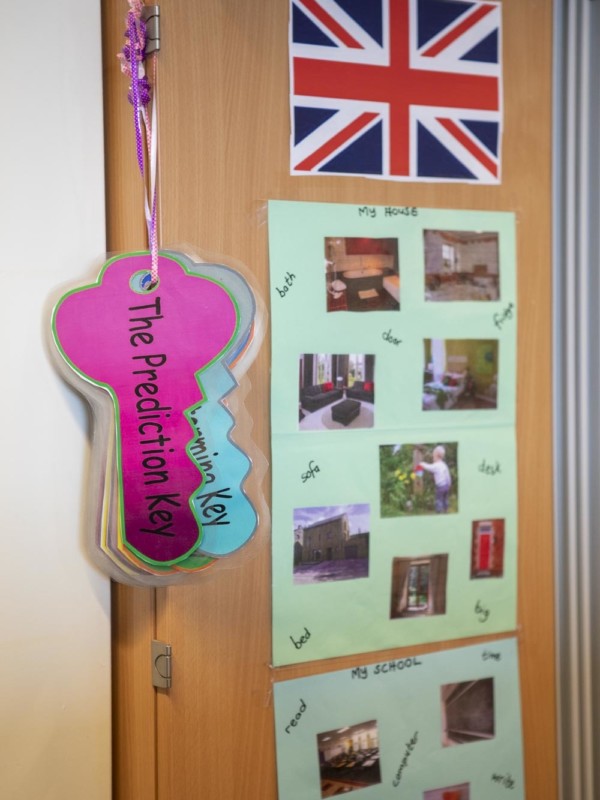
Children receive English education from the age of 4. 30 to 50% of all lessons are given in English. Our education is based on the theory of multiple intelligences.
OBS Passe-Partout integrates English into the subject world orientation. World orientation is given thematically. The emphasis is on speaking skills and vocabulary.
What is the pilot program?
The pilot Billingual Primary Education (TPO) is a five-yare commissioned by the State Secretary of Eduction. 20 Primary Schools received permission to teach 30-50% of the education in English, French or German from an age of 4, and the rest in Dutch.
For further information according to TPO, we refer you to the website: Website Billingual Primary Education (TPO)
Progress of the pilot TPO.
OBS Passe-Partout has a native speaker English who coordinates the English throughout the school. Besides this, there is an Expert English Group who monitors the English at school. All teachers are on a B2-level of English speaking skills.
Why this choice
for OBS Passe-Partout?
Internationalisation
Internationalisation is in development in primary school education. Yearly the amount of schools that offer internationally orientated educational activities is growing. Especially the Early Second Language Eduction is increasing tremendously. Nearly 1.000 primary schools offer a second language from group 1, of which 90% in English.
OBS Passe-Partout wants all students to receive a foundation of internationalisation. By introducing the international world at an early age, we give them a head start.
There are many ways to work on internationalisation. It can refer to policy development, as well as the organisation of the education itself. OBS Passe-Partout meets this by working with Early Bird, Nuffic and foundation BOOR.
Internationalisation in the primary education distinguishes in 4 domains:
- Early Second Language Education
- International policy development
- International orientated learning content
- Physical and digital exchange
Early Bird.
Early Birs originated in 2003 at the initiative of BOOR. For more information on Early Bird we refer you to the website: Early Birdie
Bilingual Education.
Bilingual education prepares the students better for a growing internationalised society. Therefore language skills are essential, as well as knowledge of Europe and experience with countries around us. Bilingual education has 2 main goals: promoting better language skills and obtaining an European and International perspective. Language becomes inbedded into a broad, international orientated context.
Quality Ensurance.
Tot Ensure the quality of Education at OBS Passe-Partout we keep the following requirements:
- A Student Tracking System that satisfies the requirements of inspection.
- Proper and thorough research on the structure of this type of eduction, during the first few years. Subsequent securing and utilizing the results into the structure of the groups following.
- For the student with learning disabilities the program is adjusted, where necessary, as described in the curriculum.
In terms of the pilot Bilingual Education, agreements with regards to the monitoring of the results of Billingual Education is made. The universities of Utrecht, Leiden, Maastricht and Nijmegen and the national Expertise Centre of Curriculum Development are facilitating this. They take care of the tailored test material for this type of education. - English Education is 30-50% of the teaching time, conforming with the organisation of the pilot TPO.
Child Care Centre.
Child Care Centre BijDeHand Kunstenmakers is situated next to OBS Passe-Partout and offers placement to toddlers of 2-4 years of age. OBS Passe-Partout works closely together with them. Twice a week, our native speaker provides English lessons there, such as activities like reading, singing and counting.
